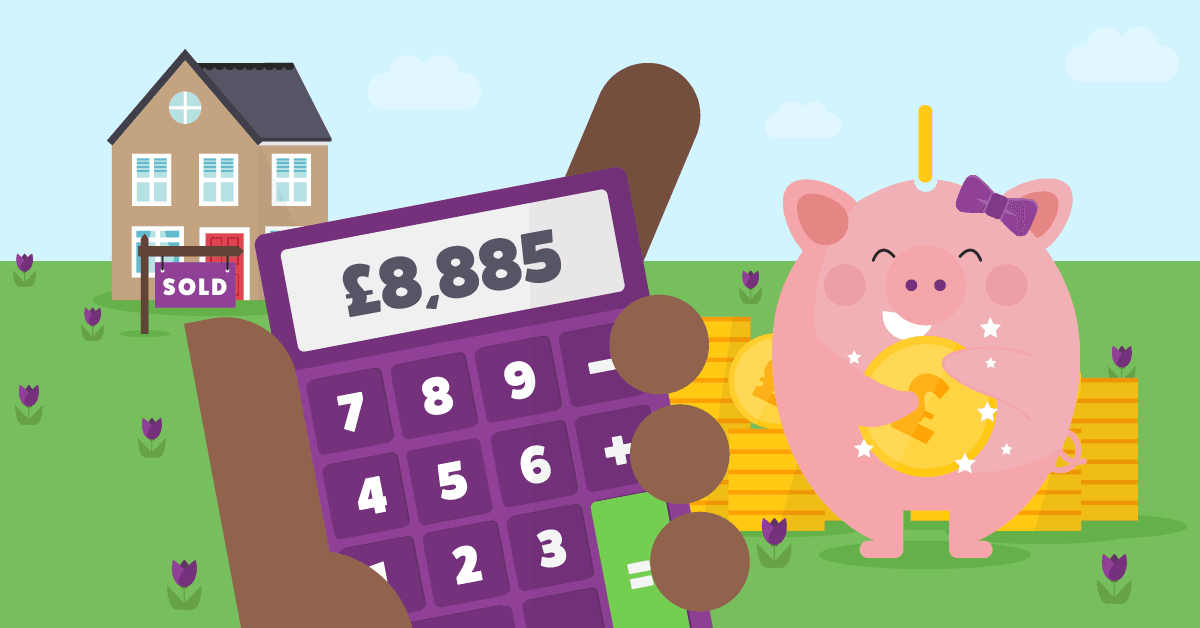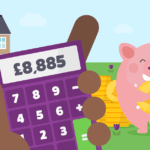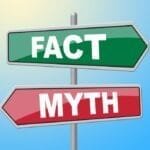Are you wondering – Can I get a mortgage if I am in debt? You have reached a point in your life when you want to own your own home, rather than pay rent, and get the chance of buying a property – but you have to plan.
Part of the planning is saving for your deposit whilst still enjoying a social life, that’s not easy for most of us as we have to become disciplined with our expenses.
Let’s delve into you possibly having a mortgage and see if it is for you:
A standard mortgage tends to be a lot less to pay out each month than most residential rentals these days.
If you can afford to pay a high rent then it would seem likely you can afford a mortgage – not necessarily! Find out more by reading on, unfortunately this isn’t what a mortgage lender scrutinises when they calculate your affordability.
In the past mortgage lenders only needed to take into account the size of your deposit, annual income and credit scoring. Nowadays all mortgage lenders check people’s affordability status by doing an in depth analysis in to their outgoings and expenditures. All debts you owe are an important part of this affordability scoring, this gives the lender a good indication of your liability to have and repay a mortgage with them, and this includes future interest rate rises which you would have to be able to pay.
Having or being in debt (please read our blog on “Money arrears & home budget planning”) does not mean you will be not be able to get a mortgage and being in healthy debt can be a good thing, as it shows the lender you can control your finances.
There are three important points for you to consider if you’re asking “Can I get a mortgage if I am in debt?”
- How large is your deposit? It probably goes without saying that the bigger your future home deposit is the more choice of mortgage products become available to you and the easier it could be in receiving a ‘mortgage offer in principle’ (a DIP). Should I borrow on a loan to make up the shortfall of a decent deposit? The answer is a definite ‘no’, as the extra borrowing would impact on your credit scoring when applying for your mortgage.
- Check your affordability before applying to a lender: If you are thinking about applying for a mortgage you will need to know how much you can afford to pay out each month, write out a budget plan (your incomings and outgoing expenses).
Having done your monthly finances you will have a good indication of your monetary situation. From here you can use one of the many free, online mortgage affordability calculators to see how much of a deposit you will need and how much you can borrow. Thinking ahead to a future mortgage is a great way to educate yourself on how much you can borrow, without having to talk to a broker. Be mindful though, mortgage calculators are basic and don’t give a complete and accurate answer to how much you may be able to borrow.
When you are ready for a mortgage, going through a broker will make life easier for you, as they will have access to the mortgage market and can best advise you on which type of mortgage product suits your current affordability.
Every mortgage company will have their own terms and conditions, which can vary a lot from lender to lender. Most mortgage lenders require you to give details of the whole of your finances as well as supplying evidence, often asking for 3 – 6 months of bank statements.
Can I get a mortgage if I am in debt? How your debts affect your affordability
If you have had debt problems in the past you need to make sure your current credit record stays clean, this will build a healthier credit score but can take up to a year to achieve.
If you know you are struggling to make debt repayments, the mortgage lender is likely to find out and you are probably unlikely to get a mortgage offer. In essence, you need to get your debts down to more easily manageable level, if you are in a debt management plan or insolvent you are also going to find it hard to get a mortgage, however large your deposit. And also check your credit records: Checking your own personal credit scores is very important and it would be wise to use 2 or 3 of these free online credit report tools. You should check your details to ensure they are correct and find out your true credit score.
There could be a mistake on your credit reference that you were not aware of, such as an incorrect link to another person’s account, or a wrong previous address, or an outstanding utility debt from when you moved home. Tip: An error on your credit file can take months to rectify and it’s best to check this now before you go house hunting and apply for a mortgage.
Remember, what you see on your credit report will be seen by any mortgage lender too.
Do you have previous (old) debt problems?
Can I get a mortgage if I am in debt? It’s not just the category of debt that is important, it also matters when it happened and when the debt was sorted out. A debt issue that was remedied is much better than one that is still current and ongoing, which is not good for any personal mortgage application. All current debts are recorded on your credit file; a defaulted debt disappears from your credit log six years after the default date. Also, any default debts will usually not be counted by companies after three years have lapsed.
Have you had to use a Payday loan?
Can I get a mortgage if I am in debt? We have heard that Payday Loans have been labelled a poor man’s bank and most lenders do not favour this type of loan very well. If you have used a recent payday loan facility, even if this debt is paid back on time, payday loans may make it harder to apply for a mortgage.
Can I get a mortgage if I am in debt? How healthy is your credit score?
Enough of the dark side of our debt chat, let’s take a more positive look at how your credit can improve. By now you will know how good your overall picture sits: your deposit, affordability, current debts and credit record. Correct? If it’s still bleak then you are going to have to spend some time improving it.
So how can you quickly improve your credit score? While there are no magic formulas, there are some simple things you can do now that will help improve your score right now*:
- Register to vote at your current address.
- Check your credit report and report any discrepancies.
- Close any accounts or credit cards you don’t use.
- If you have never had a credit card, apply for one now and use it, clearing the balance every month.
- Set up automatic minimum payments for any credit or store cards you currently hold.
*Please note; we are simply informing you of ways you may be able to improve your credit score, this is not a guaranteed result. Always take registered independent advice before taking on additional credit or loans.
Time is a great healer of credit records, adding 6 or 12 months of perfect credit ticks every month improves your overall credit score count.
Once you know you are ready to apply for that mortgage, you must do everything possible to avoid creating new debt, as it is the mortgage company that makes the final decision. We hope this QPS blog has been useful to you in your understanding of debt, prior to applying for a mortgage.







0 Comments